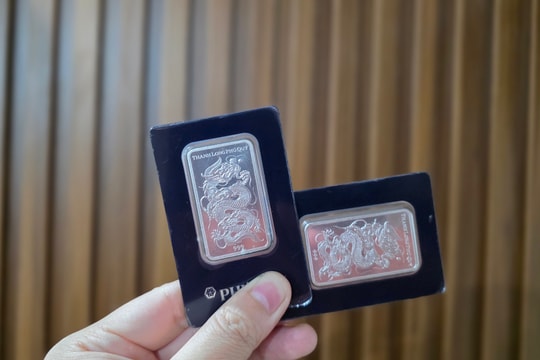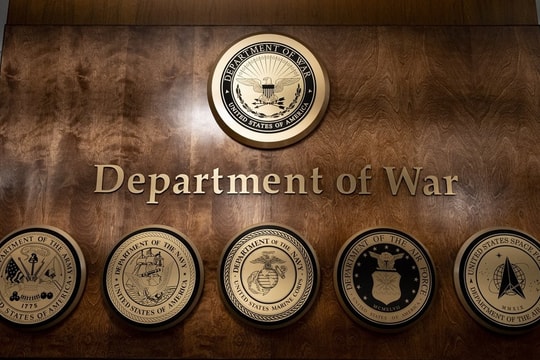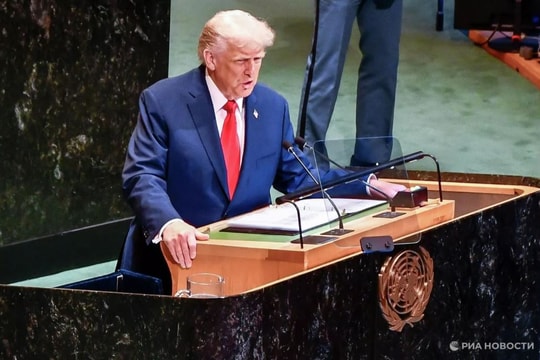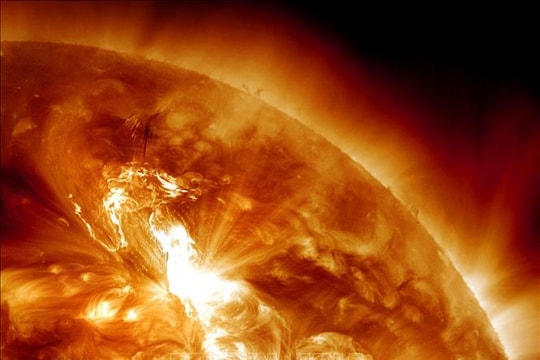US-ASEAN Summit: What do experts say?
The meeting between the US president and ASEAN leaders today could open up new opportunities for cooperation on maritime security, an Asia-Pacific security expert said.
Professor Alexander Vuving, from the US Asia-Pacific Security Studies Center, spoke with VnExpress about the US-ASEAN summit as well as bilateral cooperation between Vietnam and the US in the coming time.
PV: What results can the US and ASEAN achieve after this meeting?
The two leaders are expected to outline the basic principles for the new Strategic Partnership established last year. In other words, the Joint Statement of the conference will define the content of cooperation between the US and ASEAN, in which freedom of navigation and maritime security in Southeast Asia will be an important content in the statement, because the US has great interests in this issue. Whether or not the Joint Statement mentions the East Sea, and to what extent, is also a matter of struggle between the countries. Cambodia may fight to not mention the East Sea, but this time they do not play the role of chair, so the East Sea issue will be in the Joint Statement.
Before the Strategic Partnership with the US, ASEAN had already established this level of relationship with China. This shows that ASEAN's relationship with the major powers has become more balanced. I would also like to note that one of ASEAN's working principles is based on consensus, so if just one member country is influenced by China, collective decision-making can be weakened.
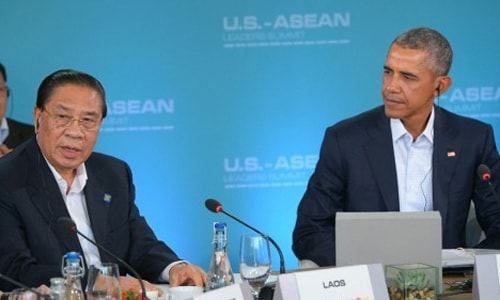 |
| US President Barack Obama, right, with Lao President Choummaly Sayasone, this year's ASEAN Chair, during a meeting at Sunnylands on February 15 local time. Photo: AFP |
PV: With developments in the East Sea predicted to become more tense this year, what do you predict the US will do besides patrolling?
The US patrols in the East Sea have been carried out for a long time, but recently they have become more frequent. Public opinion is particularly concerned and countries in the region have officially responded.
In reality, countries have no effective way to truly prevent China’s unilateral actions in the East Sea. Beijing will continue to build structures on the entities it illegally occupies in Hoang Sa and Truong Sa. China will also increase the number of ships disguised as fishing boats, law enforcement ships and even military ships in the East Sea.
US-ASEAN cooperation is a chess move that may have long-term effects, but will not immediately deter China.
Therefore, I think the most reasonable policy is for countries to strengthen their alliance to establish a credible counterweight to restore strategic balance in this region.
PV: What are the more specific proposals for strengthening the alliance as you mentioned?
Countries that share the desire to prevent China from monopolizing the East Sea must overcome mutual suspicion and more strongly demonstrate their legitimate right to self-defense, including the right to form defensive alliances with other countries.
Above all, countries must change their major strategies towards China. They cannot continue with the current approach of "engagement and hedging", but need to move to a new position that I call "balancing and sharing". That is, countries must establish a credible counterweight to China's rising power, moving towards a model of collective leadership in the region in the long term.
The South China Sea can only be stabilized under the management of a collective international institution. This institution will be the nucleus of a future collective leadership model for the region. However, for this institution to be accepted, there must first be a balance of power in the region.
PV: As a country with direct interests in the East Sea, what actions should Vietnam take?
Vietnam needs to strengthen both its internal and external resources. Without real power, no country can guarantee its own interests. Without the support of friends, it cannot guarantee its own interests, even a big country like the US.
The East Sea dispute is a formidable challenge for Vietnam, but it is also an opportunity for Vietnam to regroup. A country can only be strong if its leaders and people know how to put their own interests in the common interest, striving for the common interests of the entire community. The East Sea issue creates an opportunity for the Vietnamese leaders and people to put national interests above all else.
To ensure its interests in the East Sea, Vietnam must first take this issue very seriously and not consider it a "small matter in the big picture". The East Sea can be the key to big-picture issues.
Vietnam still has a lot of room in its legitimate self-defense rights, and needs to use those rights more decisively. The purpose is to strengthen its internal strength and increase external support. If it refuses to take steps that can increase its internal and external strength just for the sake of immediate peace, it will not be able to ensure its interests in the long run.
PV: What is your forecast for Vietnam-US cooperation this year?
The official visit of General Secretary Nguyen Phu Trong to the US last year not only marked a turning point in the relationship between the two countries, but also represented an important shift in Vietnam's diplomacy. It demonstrated a trend of being more open to the West, placing Vietnam in a more balanced position in its relations with the US and China. I believe that Vietnam and the US will continue to grow closer in the coming years, possibly establishing a Strategic Partnership. Two areas that will see important steps of cooperation are economics and security.
2015 was the biggest milestone in Vietnam-US relations since the re-establishment of diplomatic relations. Mr. Trong’s trip erased most of the strategic suspicions that had hindered the cooperation process between the two countries. Vietnam and the US have basically completed the process of normalizing relations.
US President Obama will visit Vietnam in May, a visit that will be symbolic, marking a further tightening of relations between the two countries.
According to VNE
| RELATED NEWS |
|---|




